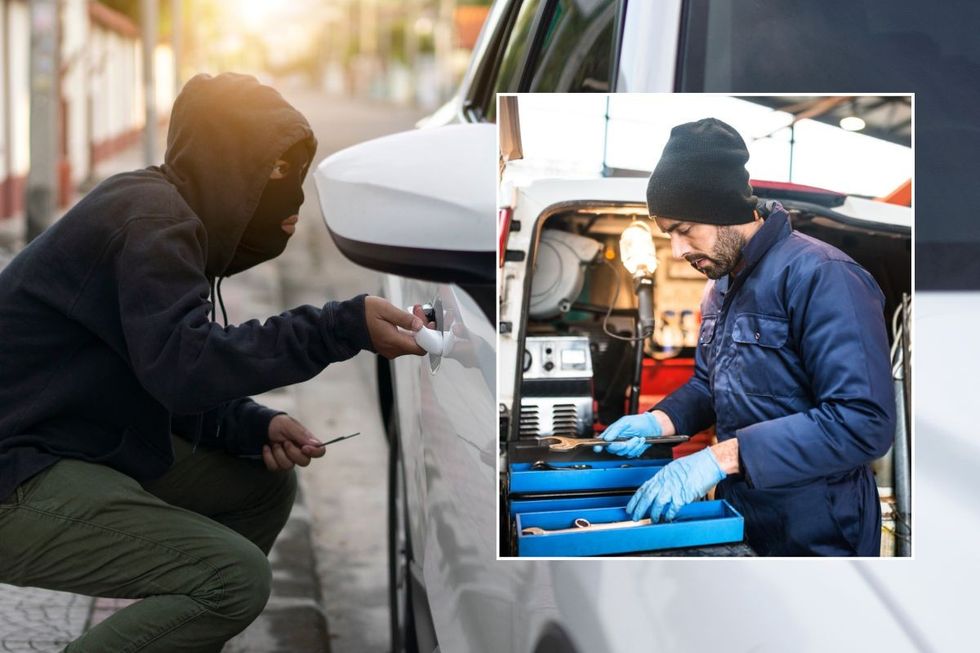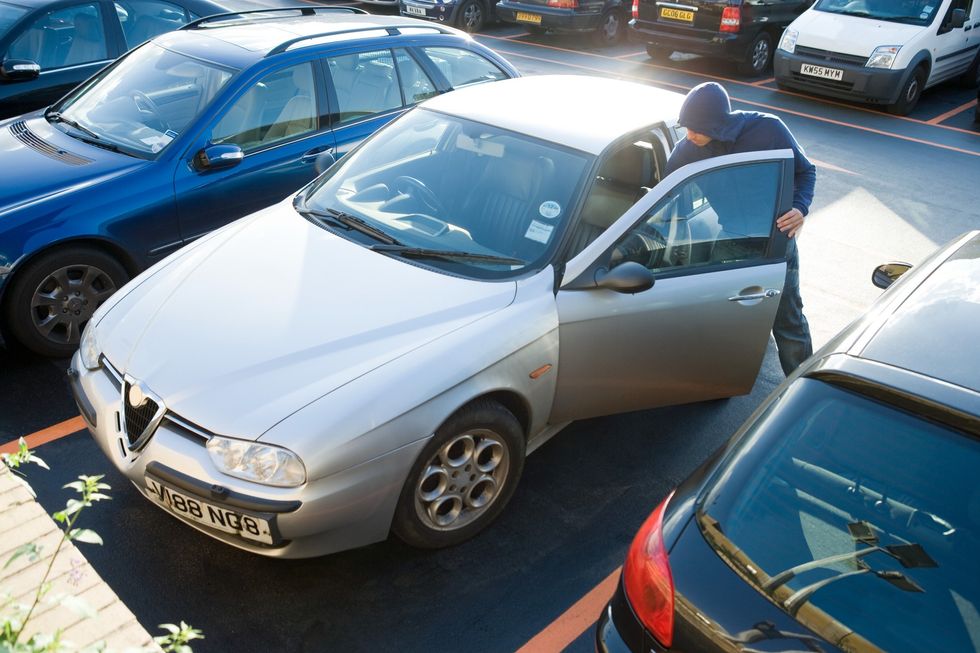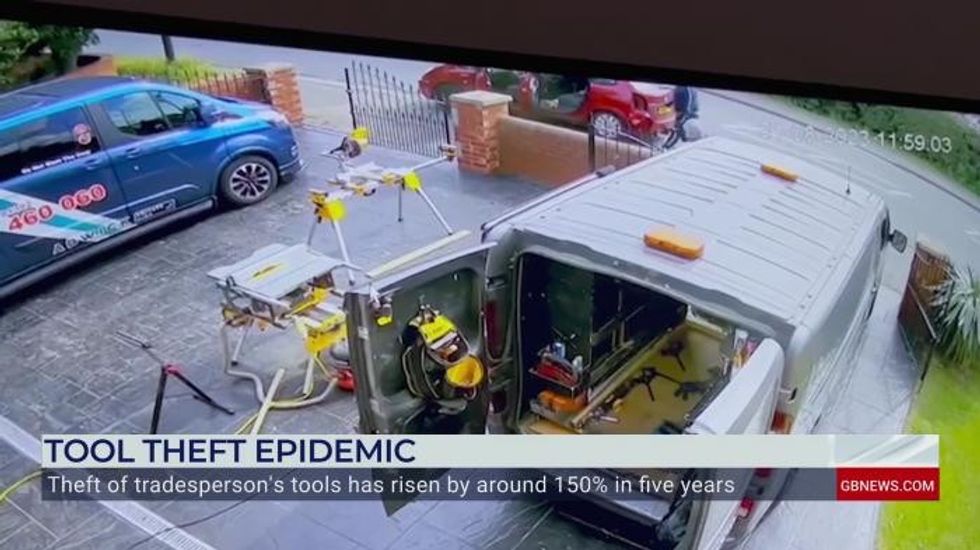Tradespeople issued urgent tool theft warning as criminals use heatwave to target vans - 'High alert'

WATCH: On The Tools CEO says tradespeople's vans are being broken into 'every 12 minutes'
|GB NEWS

'Tool theft from vans isn't just an inconvenience; it disrupts businesses and livelihoods'
Don't Miss
Most Read
Tradespeople across Britain face heightened risks of tool theft during the summer months, with nearly half of all equipment thefts occurring directly from vehicles.
New data reveals that 49 per cent of tool thefts in 2024 involved items stolen from vans, with 12,414 such incidents reported last year alone.
Security experts are warning van owners to remain vigilant as temperatures rise, cautioning that opportunistic thieves exploit the warmer weather when tradespeople may leave windows open or vehicles unlocked during brief stops.
The surge in thefts typically peaks during summer months, when extended daylight hours and increased outdoor work create more opportunities for criminals to target unattended vehicles.
Do you have a story you'd like to share? Get in touch by emailing motoring@gbnews.uk

Drivers are being urged to ensure they are taking steps to minimise the risk of vehicle and tool theft
|GETTY
The financial toll on Britain's construction industry is staggering, with stolen tools representing more than £40 million in lost equipment annually.
Beyond the immediate cost of replacing stolen items, businesses face an additional £16million in disruption and lost earnings, according to industry data.
For self-employed tradespeople, who make up a significant portion of van owners, such thefts can prove particularly devastating to their livelihoods.
The total economic impact extends beyond replacement costs, as tradespeople often cannot work without their essential equipment, leading to cancelled jobs and damaged client relationships.

Experts are warning that instances of car theft could become more common during the warmer months
| GETTYMike Thompson, Chief Operating Officer at Leasing Options, emphasised the severe consequences: "Tool theft from vans isn't just an inconvenience; it disrupts businesses and livelihoods.
"During heatwaves, it's easy to become complacent, leaving windows cracked for ventilation or failing to lock doors during quick stops, but this is exactly when opportunistic thieves strike."
He urged tradespeople to adopt basic security measures, including keeping tools hidden from view, installing additional locks or tracking devices, and choosing well-lit parking areas.
"As the UK faces rising temperatures this summer, van owners should be on high alert for opportunistic thieves," Thompson advised.
LATEST DEVELOPMENTS:
He also stressed the importance of swift action following any theft, advising victims to report incidents to police and insurers immediately to help recover costs from damage such as forced entry or broken windows.
Former Police Superintendent Gary Higgins, now Director of Security and Risk at DeterTech, advocates for forensic marking technology as a crucial deterrent against tool theft.
"Tool theft is a huge issue for tradespeople and for the entire construction industry," Higgins stated, recommending that van owners never leave items visible and remove tools overnight where possible.
He specifically supported the use of SmartWater forensic marking, which is already becoming more popular, noting its remarkable track record.

Tool theft remains a serious issue for many tradespeople around the UK
| GB NEWSThe former police officers said: "SmartWater has a 100 per cent conviction rate in contested court cases.
"That makes it a proven deterrent that also ensures stolen items can be traced and returned to their rightful owners by the police."
Higgins advised displaying clear signage on vehicles indicating that forensic marking solutions are in use, explaining that "these simple steps can make a significant difference in preventing crime and safeguarding livelihoods".










